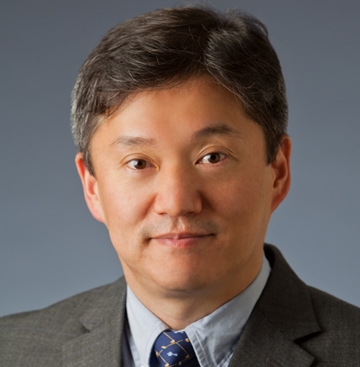Yong Joo named senior associate dean for M.Eng. programs
Professor Yong Joo has been named the Senior Associate Dean for Masters of Engineering Programs. Read more about Yong Joo named senior associate dean for M.Eng. programs

Yong Lak Joo is BP Amoco/H. Laurance Fuller Professor in the School of Chemical & Biomolecular Engineering at Cornell University. He received his B.S. degree at Seoul National University in Korea in 1989, and received his M.S. and Ph.D. in Chemical Engineering at Stanford University in 1993. From 1993 and 1999, he was a senior research engineer at Hanwha Chemical Corporation in Korea. Prior to joining Cornell in 2001, Yong Lak Joo did two years of a postdoctoral research in the Department of Chemical Engineering at MIT.
His research focuses on the integration of molecular details into a macroscopic level in nanomaterials processing. He received a 3M Faculty Award in 2004. He is also a recipient of a National Science Foundation CAREER Award and a DuPont Young Professor Award. He also received an Excellence in Teaching Award in College of Engineering, Cornell University. He is a fellow of American Institute of Chemical Engineers (AIChE).
Our research focuses on the integration of continuum analysis with molecular details in nanomaterials processing. Areas of current interests include the microstructural rheology and mesoscale modeling of processing of complex fluids, the formation of nanostructures in nanomaterials, and the occurrence of viscoelastic instabilities in polymer flows. In particular, we have recently laid a new foundation for experimental and theoretical studies on advanced, scalable nano-manufacturing processes based on the flow instability such as gas-assisted electrospinning, air-controlled electrospray and Taylor-Couette (T-C) reactors with axial flow. Incorporation of high loading of inorganic precursors into water-soluble polymers in gas-assisted electrospinning gave rise to cost-effective, facile production of metallic and ceramic nanofibers. Comprehensive mesoscale modeling and simulation studies on the dynamics of confined assembly of block copolymer or blends and graphene materials via air-controlled electrospray lead to carbon and ceramic/graphene composites with tailored nanostructures such as ordered mesopores and layered graphene sheets which are being used in reaction studies in various catalysts and energy storage devices. The newly developed model reactor based on continuous T-C offers fundamental studies on the effect of flow structures on crystallization and chemical reactions.
* Graduate Teaching - Mathematical Method in Chemical Engineering; Advanced Fluid Mechanics and Heat Transfer * Undergraduate Teaching - Plant Design; Analysis of Separation Processes